“Fantasy is dead.”
This is the message that greets you when your party gets wiped out in Metaphor: ReFantazio, followed by a series of tragic, dissonant chords that is meant to make you feel bad. It’s blunt, to the point, and it’s the perfect encapsulation of this game’s essence. After all, without fantasy or imagination, what else is there to life?
For the past decade, Atlus has made a name for itself with Persona, an RPG series that’s popularized the slice-of-life/dungeon-crawling hybrid formula that calls back to its players’ halcyon school days and easy youth. Indeed, Atlus and Persona are basically synonymous at this point, which makes the idea of a brand new IP all the more exciting.
Metaphor: ReFantazio is built on the foundation and bones of Persona and Shin Megami Tensei, and the result is a role-playing fantasy so much more grand and ambitious than anything we’ve ever seen from the team.
A Royal Assassination
Our story begins with the assassination of the King of Euchronia. The perpetrator is a powerful general by the name of Louis, who also happens to be the most attractive anime man you will ever lay your eyes on. In assassinating the King, he hopes to claim the throne for himself and create a world where your race doesn’t matter — only power. In a universe where racism is rampant and “lesser” tribes are treated with such little care, Louis’ vision sounds almost like a utopia.
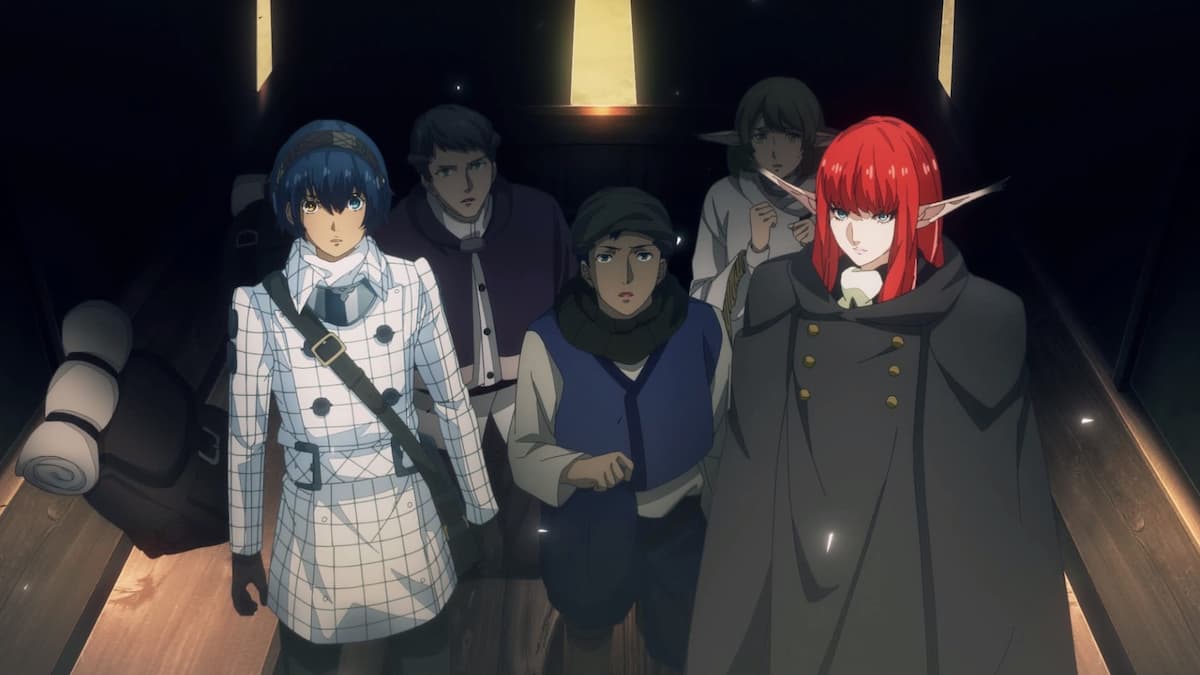
Louis also happens to be a suspect in the murder of the King’s own son, the Royal Prince. There’s a catch, though; while most believe the Prince to be dead, he’s actually just been cursed and lies in a coma, unable to wake up. The only ways to undo the curse are by finding the formula or killing the caster. In order to save the Prince, a fairy named Gallica and a young boy we shall refer to as the Captain go on a mission to track down Louis in hopes of either undoing the curse or, if push comes to shove, killing Louis if all else fails. This is where our story begins.
Right off the bat, it’s clear that there’s so much more than meets the eye in Metaphor: ReFantazio. The premise of the story is simple, but it won’t be long before you start noticing little peculiarities. The Captain carries around a fantasy novel depicting a world that sounds remarkably similar to ours, the terrifying monstrosities in this game are referred to as “humans,” and what’s with that intro sequence showing off what looks like Shibuya in modern-day Japan? There’s some serious Shin Megami Tensei shenanigans going on here, and while the bulk of Metaphor focuses on the present-day and the medieval fantasy vibes, you can’t quite shake the feeling that there’s something really strange going on.
Those are fun little secrets I’ll leave for you to discover on your own, though. What I want to focus on is the sheer scale of Metaphor: ReFantazio. While the early hours up to the end of the first dungeon can make you feel like you’re on rails, it’s not long before the game starts to open up and show you just how much there is to see and do.
Peak Comfy Fantasy
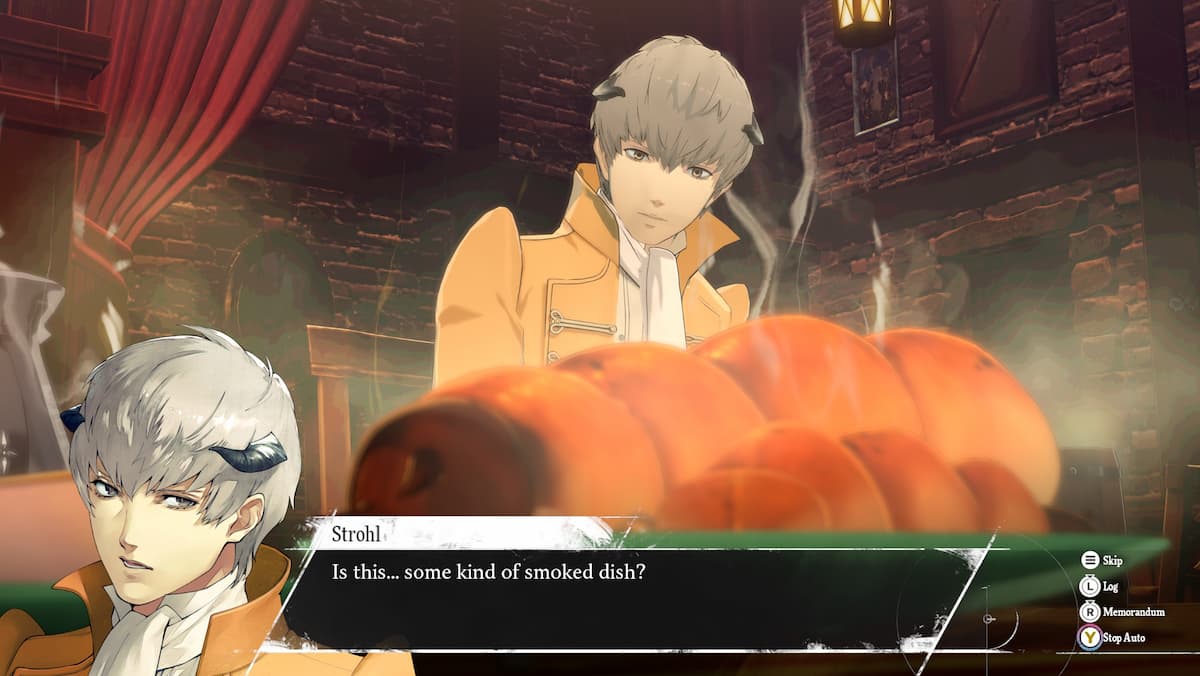
While this isn’t an open-world game in the sense that you can just go anywhere anytime a la Skyrim or The Witcher 3, Metaphor: ReFantazio does a wonderful job of bringing the world to life and making it feel lived in. I think it’s the warmth of the world map and all the detail that has gone into crafting it. Campsites are marked by hand-drawn campfires with crackling wood and flames, and key locations are hastily circled on the map itself.
There are a handful of major towns to visit, while smaller villages are depicted as just a splash screen with the option to buy and sell items. As you travel around the world, Neuras the pilot will occasionally pull the gauntlet runner (think giant plane but with mechanical legs that run across the lands) to a stop to direct you to a particularly gorgeous vista or historical landmark. These are also splash screens, but my goodness are those splash screens pretty.
A lot of effort has gone into making Euchronia feel like a well-realized world with rich histories that inform the nuanced relations between the different tribes. As you travel across the world, time passes as well, and since this game does feature a calendar system, that means you do have to plan out your time wisely to make sure you’re giving yourself space to knock out all your side quests and actually do the main story quests. While you’re on the road, you can cook, fish, read, or spend time with your party members. At night, the gauntlet runner comes to a stop as the party sets up camp to rest up before resuming their travels in the morning.
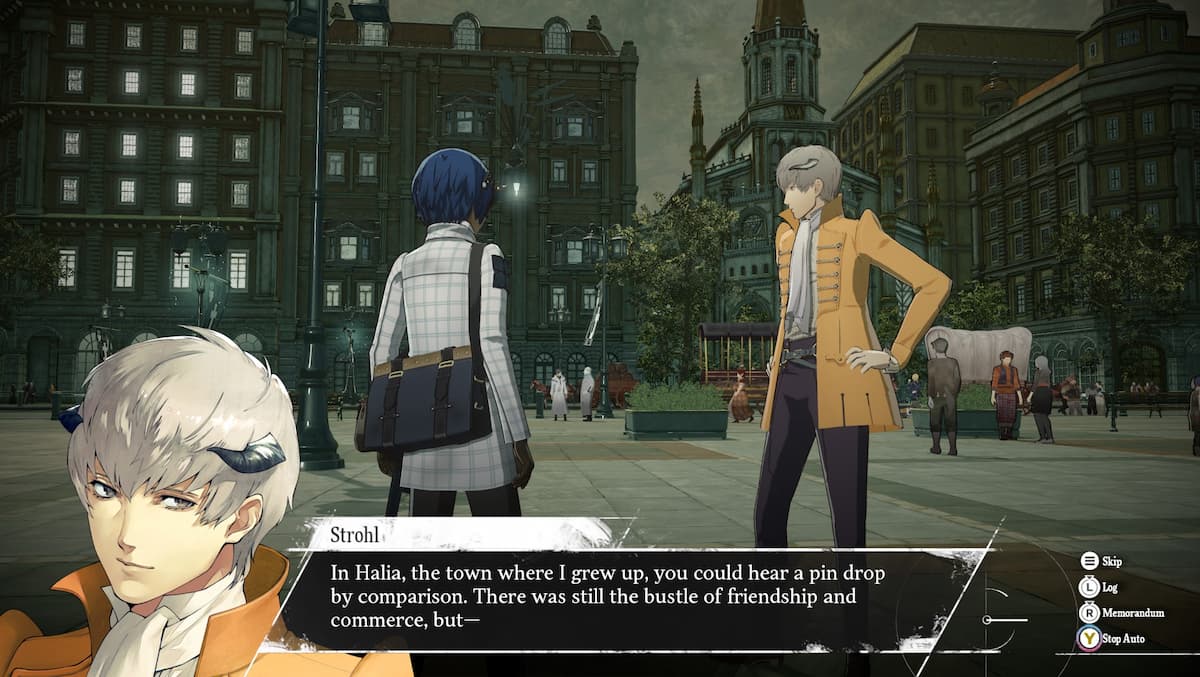
I cannot overstate just how comfy and immersive this feels. The world in Metaphor: ReFantazio may not actually be that huge, but it doesn’t need to be. The passing of the days helps to add weight to your travels, and when you combine that with the beautiful art and the care that has gone into fleshing out Euchronia’s landmarks, Metaphor: ReFantazio truly makes you feel like you’re on a grand journey full of new, exciting things to discover.
As the Captain and Gallica recruit more party members to their cause, eventually they’re forced into an event called the Tournament for the Throne. Even in death, the King has managed to use his magic to give full power to the people. The next King of Euchronia will be decided by a popularity contest, and the candidate who can garner the most support from the people will be crowned. In order to prevent Louis from winning the Tournament, the Captain enters the running as well, and this will make up the bulk of your time in Metaphor: ReFantazio.
Actually, This Game Is a Popularity Contest
Gaining popularity from people can be done through a variety of things: simply following the main story path, doing side quests, and befriending the people you meet along the way. There are several characters you’ll cross paths with during this journey, many of whom can become Followers — you may think of this as Metaphor‘s equivalent of Social Links or Confidants.
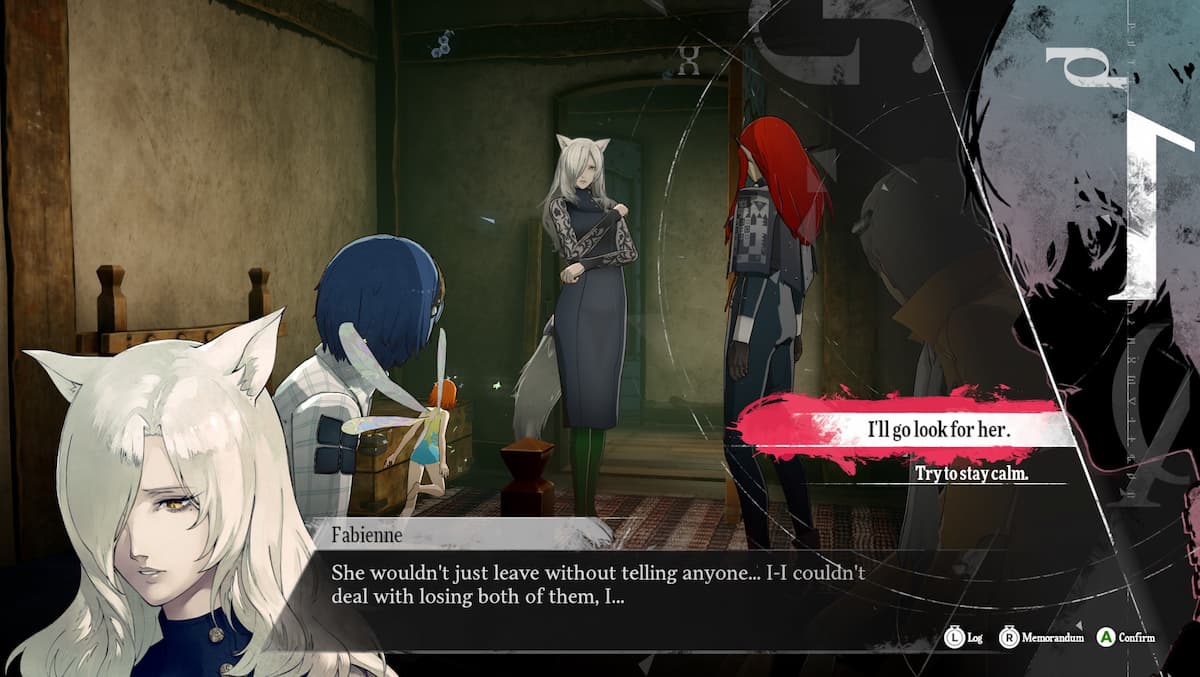
Deepening your bonds with Followers will unlock Archetypes, which are kind of like classes or jobs that you can equip in combat. Followers can also give you access to more resources and other perks that make combat just a little bit easier. I love how dynamic the Follower system feels in Metaphor: ReFantazio. Very often, Followers will move around the world so you won’t always find them in the same place. This helps to make them feel like actual people with unique motivations and desires. There are also way fewer Followers than there are Social Links in your typical Persona game, which means that there’s more space for these characters to grow and breathe.
There are no duds in the Follower system, which is a lot more than I can say for Persona. Every single one of them is compelling in their own way, and they’re easily the highlight of the game. A large part of why the Followers feel so well-written – especially your party members – is because you’re given a proper goal right at the start of the game. All of your allies are invested in the mission, even if they weren’t part of the strike team at the beginning.
Outside of your party, the characters you meet along the way are compelling as well, and all help to flesh out different aspects of the world: the segregation, the sentiment towards the Tournament of the Throne, the list goes on. Catherina is a rival who wants to best you in the race for the throne, while Bardon is just your good ol’ morally upright commander who’s maybe just a bit too rough around the edges. I also appreciated the fact that Follower ranks are capped at eight instead of 10, and there’s no need to spend time with them in between rank-up events like you do in Persona. The whole Follower system feels very streamlined and concise, and it’s stronger for it.
It’s imperative that you make time for your Followers, as doing so gives you access to more Archetypes, which leads us to the combat of Metaphor: ReFantazio.
Don’t Get Typecast
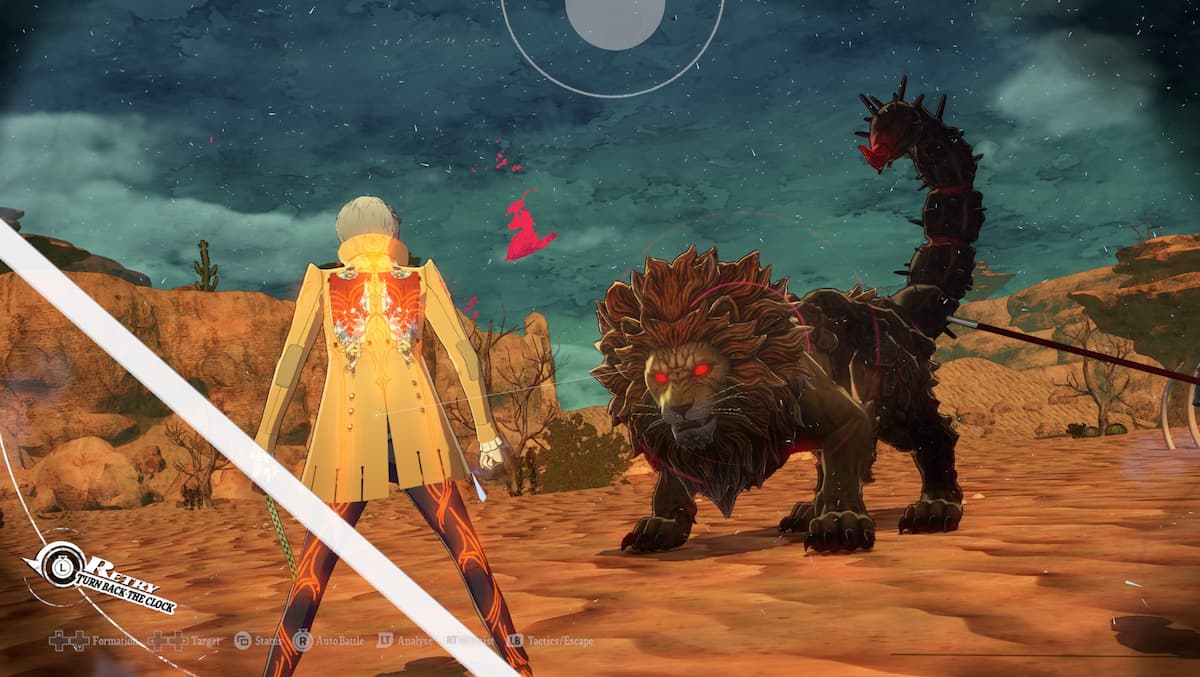
Battles are turn-based affairs, though combat feels a lot more SMT than Persona. There are no All-Out Attacks to be found here; instead, hitting an enemy’s weakness will grant you an extra turn (up to a maximum of eight), and the same goes for your foes as well. This means that it’s extremely important to shore up your own defenses while exploiting weaknesses so that you can end battles quickly. You’re rewarded for coming out of a battle unscathed as well, in the form of extra money and experience.
Archetypes are the glue that holds everything together in Metaphor: ReFantazio. As mentioned previously, think of these as jobs or classes you can equip for each character. The cool thing is that characters can equip any Archetype, though you can’t switch them out in the middle of combat. You’ll start off with some basic ones like Knight, Warrior, Mage, and Cleric. But before you know it, you’ll be experimenting with more interesting Archetypes like Magic Seeker, Faker, Masked Dancer, and Samurai.
Each Archetype gives you access to a completely different set of skills and abilities, but you’ll be able to inherit up to four skills from other Archetypes when you equip a new one, allowing for plenty of diversity and flexibility in your builds. Being unable to switch Archetypes in combat means you need to be a lot more conscientious about your party setup, and careful planning is key before each boss fight. As someone who loves min-maxing the hell out of her parties in JRPGs and testing out jobs to discover new builds, Metaphor: ReFantazio is a dream. If there were some sort of dual-classing system like in Octopath Traveler or FFXII, that’d be even better, but I’ll take what I can get.
Not only is the combat system fun, but the dungeon designs in Metaphor: ReFantazio are also pretty damn good. Bit of a controversial opinion here maybe, but I was never a fan of the way Persona 5‘s Palaces were structured. I thought they went way overboard with some of the puzzles, and I certainly didn’t love needing to retreat every now and then when progress stalls because of some story-related reason.
Metaphor‘s major story dungeons are a lot lighter on the puzzle aspect – which works for me – and they’re designed to flesh out the towns and cities they’re located in further. Even the parts that I hated (forced stealth sections need to burn and go away forever) never overstayed their welcome. It also helps that the dungeon design is varied; most of them will have you exploring rooms while cutting down enemies and bosses, while others may just be a straight up boss rush where you have to really be on your toes and plan your strategies carefully as you progress.
Overall, I’m a fan of the dungeons and combat, and the game’s calendar system gives you plenty of room to pace things out as well.
All That Matters Is the Handsome Anime Man
Atlus has never been particularly good at talking about social issues in any sort of meaningful way. From the way queerness and transgender characters were handled in Personas 4 and 5, to Persona 5‘s relentless messaging of “adults bad, rebellious teens cool,” I must admit I didn’t have all that much faith in Metaphor: ReFantazio‘s attempt to tackle racism and class divide. And, well, to be honest, the game’s take on these issues is fairly surface level and never really adds anything meaningful to the discussion, but maybe that’s not the point.
Metaphor: ReFantazio skirts around facing these issues head-on by focusing on its fantasy tropes and trappings. Towards the end of the game, there is a slight attempt at some sort of commentary on the real world and the ingredients required to create a true utopia, where everyone is equal and free, but it never goes any deeper than that. I found this a little disappointing, especially since the game seems to want to say something deep and meaningful about class divide and segregation, but it always falters and falls back on its slickness and style.
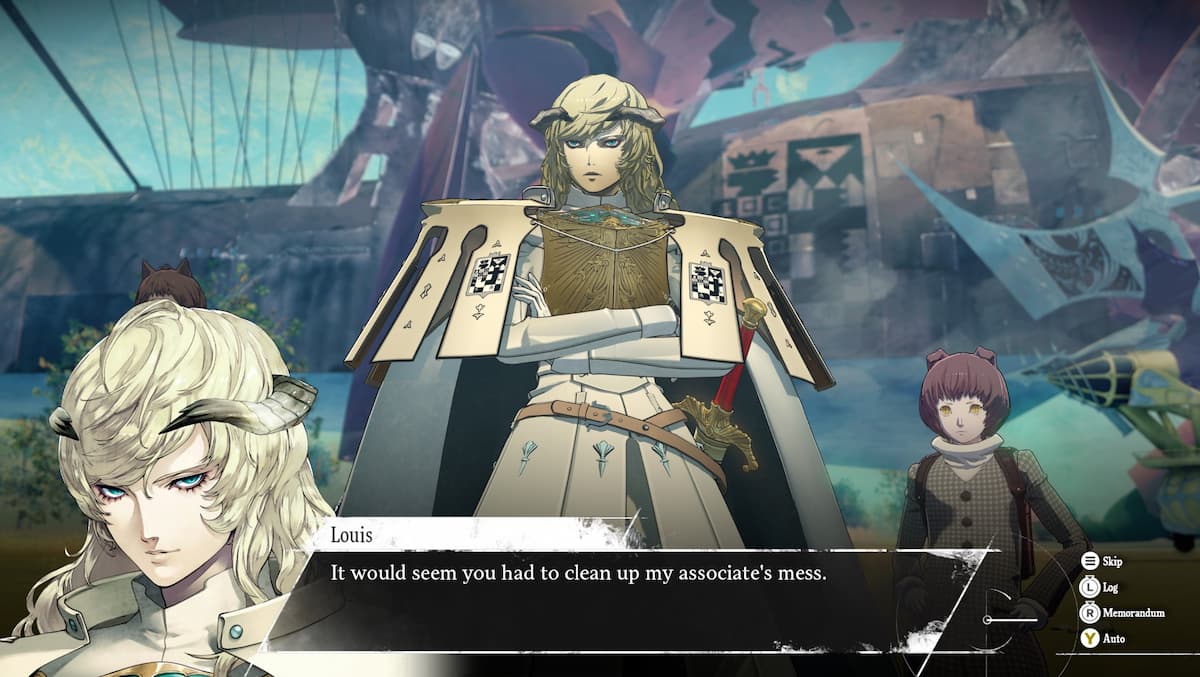
It’s a bit of a shame, but personally, I wasn’t expecting much from Metaphor on this front; all I wanted was a cool medieval fantasy game with engaging characters I could get invested in, and Metaphor is exactly that. While the Captain himself is a fascinating protagonist that you can easily root for (bonus points for making him fully voiced, by the way), it truly is Louis the villainous general who steals the show.
Without a doubt, Louis is the best antagonist I’ve encountered in an Atlus game. He’s tightly written as an incredibly sharp strategist who’s always one step ahead of you, and there’s a constant sense of unease and anxiety that permeates every scene he’s in. Louis never comes off as a simple, power-hungry tyrant, and his motivations consistently felt more nuanced and compelling than just wanting to take over the world, even if that can often be what it all boils down to in these types of games.
All of these elements come together to make Metaphor: ReFantazio a very special game. Atlus’ character writing is at its peak here, and so is the world-building. When Metaphor was first unveiled as Project Re:Fantasy, it was billed as a fantasy game that aimed to stimulate the mind and unlock the very depths of our imagination. Metaphor: ReFantazio isn’t a game that breaks new ground in the fantasy genre, but it does create a truly spectacular universe that feels both real and wondrous, which is a feat in and of itself, especially in an industry where both players and critics alike have only gotten increasingly jaded and cynical.
In the midst of all that cynicism, Metaphor Re:Fantazio proves that fantasy is not, in fact, dead.
Verdict: Exemplary
Metaphor: ReFantazio releases for PC and consoles on Oct. 11. A review code for the game was provided by the publisher. Reviewed on PC via Xbox.






Published: Oct 7, 2024 10:00 am